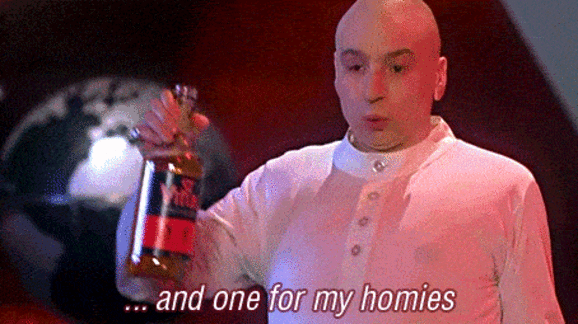Craft Brewers “Selling Out” Is Good For Craft Beer Fans

This week we learned that U.K. craft brewery Camden Town was the latest in a long string of purchases by the international mega-brewery AB-InBev (makers of Budweiser). Predictably, craft beer “purists” were immediately out on social media calling Camden Town’s owners “sellouts” who are betraying consumers and the craft beer spirit. While fans of the brewery are understandably worried that their beloved beers might change, these kinds of transactions are good and necessary for the continued growth of the craft beer sector.
The profit motive and ethics aren’t exclusive. It is possible for someone to build a business that follows a strict set of principles and have that business make them money. For entrepreneurs, it doesn’t always make sense to maintain a particular venture indefinitely when they could sell a business, make money, and then use that profit to fund their other creative ideas. In the craft beer market, having one brewery purchased by another larger brewery can sometimes be the only way for that brewery to get to the next level. It often gives their brand more capital for expansion, advertising, and access to a bigger distribution network and a wider consumer base—not just those focused on buying local beer. Also, it makes room for new local artisanal breweries to enter the market and shows investors that craft beer start-ups are worth investing in, meaning more potential craft breweries!
Every few months there’s an article about the craft beer “bubble” bursting. Considering the remarkable surge in the number of small breweries in the last two decades, it is reasonable to fear market saturation. After all, drinkers only have so much disposable income they’re willing to spend on beer. But this is another benefit of small breweries being purchased: while craft beer purists turn away from Camden Town, they will hopefully take their dollars to a different small and local brewery. Win-win.
@CamdenBrewery what's the going rate for a soul these days ?
— Ben Marlow-Booth (@BenMarlowBooth) December 21, 2015
I can sympathize with the heart-sinking feeling of watching a beloved brewery change hands (e.g., Goose Island), but this is the way the market works. It isn’t evil for the people who spent decades and risked their livelihoods to make some cash and move on to the next and possibly better adventure. They didn’t “sell their souls.” It’s just business and it’s a great thing for craft beer fans because it means more craft breweries. So, pour one for another craft brewery losing the halo of craft beer purity and then raise that glass for the thousands of other small independent breweries who will happily take your money in exchange for deliciously non-macro beer.
